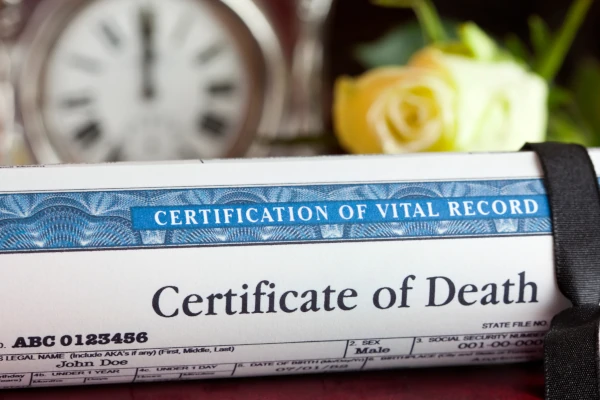Dying without a will or trust—known as dying intestate—can create unintended consequences for your loved ones. In Arizona, if you pass away without an estate plan, state law—not you—decides who inherits your property, who manages your estate, and how your assets are distributed. This can lead to delays, costs, and outcomes that don’t reflect your wishes.
Here’s a breakdown of what happens when someone dies without a will or trust in Arizona—and how the probate and inheritance process unfolds.
 Arizona’s Intestate Succession Laws
Arizona’s Intestate Succession Laws
When you die intestate in Arizona, your assets are distributed according to Arizona Revised Statutes (A.R.S.) §§ 14-2101 to 14-2114, known as the intestate succession laws. These laws prioritize your closest living relatives in a specific order.
Who Gets What?
It depends on your family situation:
1. Married with No Children:
Your spouse inherits everything.
2. Married with Children from That Marriage Only:
Your spouse inherits everything.
3. Married with Children from a Prior Relationship:
Your spouse gets half of your separate property.
Your children (from prior relationships) share the other half of your separate property.
Community property generally still goes to the spouse, but disputes can arise.
4. Unmarried with Children:
Your children inherit everything, equally.
5. Unmarried with No Children:
Your estate goes to the following people in this order:
- Your parents
- Your siblings (or their descendants)
- Your grandparents
- Your aunts and uncles
If none of the above survive you, your property may escheat to the State of Arizona (meaning the state becomes the owner)

 What Happens to Your Property?
What Happens to Your Property?
If you die without a trust, your estate will go through probate—a court-supervised process for identifying heirs, paying debts, and distributing assets.
Without a will:
- The court appoints a personal representative (Arizona’s term for executor), based on statutory priority (A.R.S. § 14-3203)
- The court determines who receives your assets, according to intestate succession
- The process may be costly and time-consuming, especially if family members disagree

💡 What Assets Go Through Intestate Succession?

Only assets that are:
- In your name alone
- Without a beneficiary designation
Examples include:
- A house titled solely in your name
- Bank accounts with no payable-on-death (POD) designation
- Vehicles or personal belongings without co-owners
Excluded assets (which do not go through intestate succession):
- Jointly owned property with right of survivorship
- Retirement accounts with named beneficiaries
- Life insurance policies with beneficiaries
- Assets in a trust
👶 What About Minor Children?
If you die without a will or trust and have minor children, the court will appoint a guardian—but you won’t have a say in who that person is. This can lead to family disputes and uncertainty.
Naming a guardian in your will is the only way to have a legally recognized voice in this decision.
 Risks of Dying Without a Will or Trust
Risks of Dying Without a Will or Trust
- No control over who inherits your assets
- No say in who manages your estate
- Increased legal costs and court involvement
- Potential family disputes
Unintended beneficiaries (e.g., estranged relatives) - No plan for incapacity or long-term care
✅ How to Avoid Intestate Succession
To avoid the default rules and take control of your legacy, consider these estate planning tools:
#1-Last Will & Testament
- Allows you to choose who inherits your assets
- Names guardians for minor children
- Must still go through probate
#2-Revocable Living Trust
- Avoids probate if properly funded
- Provides control over how and when assets are distributed
- Handles incapacity planning
#3-Beneficiary Designations
Add Payable-on-Death (POD) or Transfer-on-Death (TOD) beneficiaries to accounts and deeds
#4 Powers of Attorney
Plan for financial and medical decisions in case of incapacity
📝 Final Thoughts
If you die without a will or trust in Arizona, your estate will be subject to the state’s intestate succession laws—a one-size-fits-all plan that might not match your wishes.
Creating a simple estate plan ensures that:
- Your assets go to the people you choose
- Your loved ones avoid unnecessary legal headaches
- You protect minor children and vulnerable family members
Want to learn how to avoid intestacy? Contact an Arizona estate planning attorney or use a guided checklist to start your own plan today.
Let me know if you’d like a free worksheet or family planning guide to begin organizing your estate.


 Arizona’s Intestate Succession Laws
Arizona’s Intestate Succession Laws What Happens to Your Property?
What Happens to Your Property? Risks of Dying Without a Will or Trust
Risks of Dying Without a Will or Trust